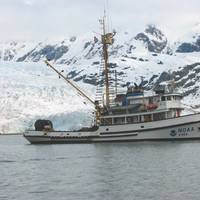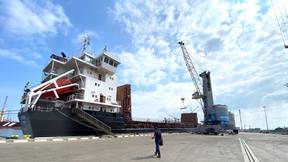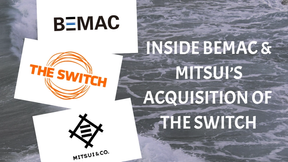Fukushima Radioactivity In Tuna off Oregon, Washington
A sample of albacore tuna caught off the shores of Oregon and Washington state have small levels of radioactivity from the 2011 Fukushima nuclear disaster in Japan, researchers said on Tuesday. But authors of the Oregon State University study say the levels are so small you would have to consume more than 700,000 pounds of the fish with the highest radioactive level to match the amount of radiation the average person is annually exposed to in everyday life through cosmic rays, the air, the ground, X-rays and other sources. Still, the findings shed some light about the impact of the meltdown on the Pacific Ocean following the March 2011 tsunami and subsequent power plant disaster, said Delvan Neville, a graduate research assistant at OSU and lead author of the study.
NOAA's Oldest Ship Retired

NOAA ship John N. Cobb, the oldest and only wooden hulled ship in the NOAA fleet, was decommissioned in after 58 years of service. The 93-ft. fisheries research vessel began service in 1950 with the Bureau of Fisheries, predecessor to NOAA's Fisheries Service, conducting albacore tuna surveys in , , and . Homeported in , Cobb has operated primarily in Alaskan waters for much of her service life, most recently in support of the fisheries service's Auke Bay Laboratories in . "The John N. Cobb has been an extremely productive platform for NOAA.
NOAA Fisheries Seize 80 Tons of Albacore
NOAA’s National Marine Fisheries Service (NOAA Fisheries) Office for Law Enforcement (OLE) special agents have seized 80 short tons of albacore tuna, worth over $141,000 , from a Cambodian-flagged longline fishing vessel, the Long Man Yun #66 in Pago Pago, American Samoa, for allegedly violating U.S. laws. of the Commerce Department. On August 1, the Long Man Yun #66 was observed within the U.S. on its deck. the vessel=s working deck. vessel arrived at dock on September 30. It is a violation of the Magnuson-Stevens Fishery Conservation and Management Act for a foreign fishing vessel to fail to stow its fishing gear below deck when it is transiting U.S. waters.







